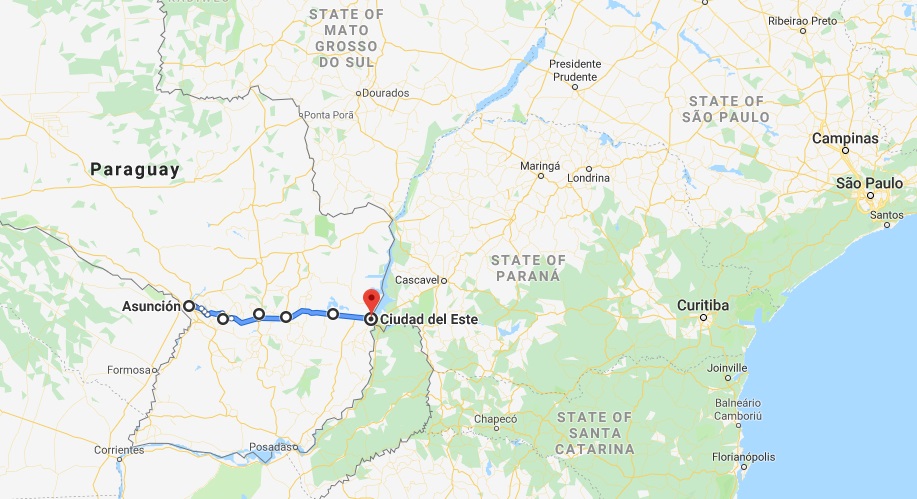RIO DE JANEIRO, BRAZIL – Itaipu Technology Park (PTI) and Itaipu Binacional engineers are fine-tuning the final details to inaugurate the first Solar Green Route for electric vehicles in Paraguay in the coming months, which will link Asunción and Ciudad del Este, on the border with Brazil, including four charging stations.

The initiative will start as a pilot project but hopes to become, in the long term, a regular form of road transport, not only within Paraguayan borders but throughout the region.
Before an electric vehicle can travel from Asunción to the Brazilian city of Rio de Janeiro, engineers prefer to consolidate the journey in Paraguay, with the idea of tracing a triangle between Asunción, Ciudad del Este and, later, Encarnación, on the country’s southern border with Argentina.
At the moment, works are being carried out for the route between the capital and the country’s second-largest city, separated by more than 300 kilometers, in which four charging stations have been installed to ensure the capacity of electric vehicles to make the trip.
Juan Domanizcky, from the Center for Innovation in Energy Technologies (CITE) of the ITP, explained that these four chargers were located approximately seventy kilometers apart, in the towns of Piribebuy, Coronel Oviedo, Caaguazú, and Juan León Mallorquín, along the road connecting Asunción and Ciudad del Este.

Each of them will be able to “refuel” between three and four vehicles simultaneously and in less than twenty minutes, through chargers powered between 7.2 kW to 50 kW, which will run on electricity and solar panels.
“This is intended to drive much more dynamically, strengthen logistics and infrastructure for electric mobility within the country in a triangle between Asunción, Ciudad del Este, and Encarnación,” said the engineer.
This is a seemingly ambitious concept, as it provide for the nearly 600 electric vehicles, including hybrids, now on the road in Paraguay; that number is growing according to data provided by Domanizcky and based on figures from the Automobiles Registry Directorate .
Paraguay’s first Solar Green Route also opts for clean transport that renounces fossil fuel, or at least relegates it to second place, and, at the same time, is economical for the user. The first phase of the green solar route is expected to be completed in June.
As this is a pilot project, Paraguayan authorities are still studying the fees for recharging vehicles at each of these posts, which also requires the participation of the National Electricity Administration (ANDE).
“For the time being, work is underway on a differential tariff incentive law for people to install chargers (…). It is not defined whether they are going to pay or not; that is why they are getting a differentiated tariff for electric movement,” said the engineer.
Domanizcky estimated the cost of the trip along the Ruta Verde Solar from Asunción to Ciudad del Este at about US$4 (R$16), which offers the electric vehicle driver a saving of almost US$36 compared to the US$40 he would pay to fill the gas tank for that trip.
PTI’s project is aimed at private vehicles, although Domanizcky pointed out that alternatives are being studied so that it may be extended to passenger transport.
In addition, th Mercosur countries wish to be interconnected by green routes, since the other members of the bloc — Argentina, Brazil, and Uruguay — are also developing clean transport models.
“First we are going to inaugurate this route, and then we are going to be promoting interconnection,” said the engineer, who preferred not to discuss dates.
In his opinion, green transport is not just a fad or one more step in the process of trial and error, but “came to stay and change people’s mindset.”

